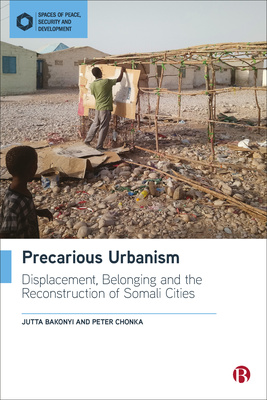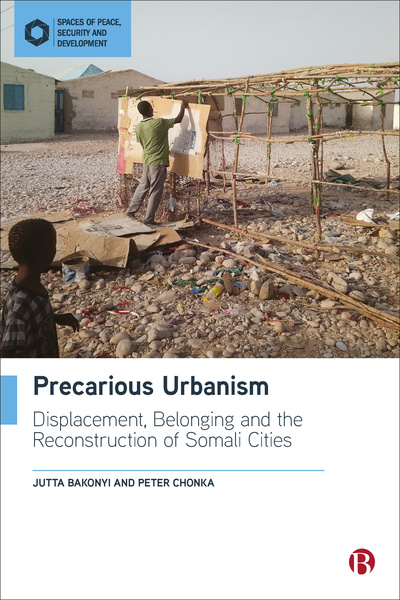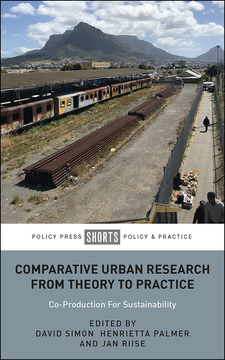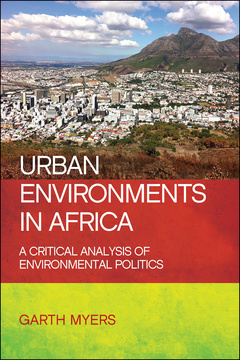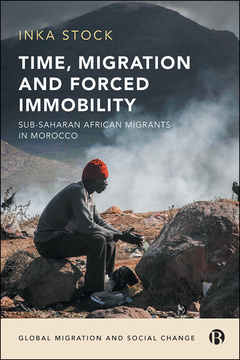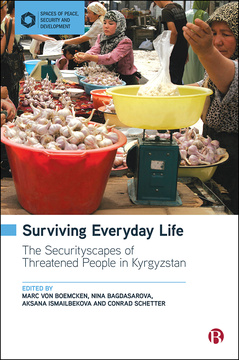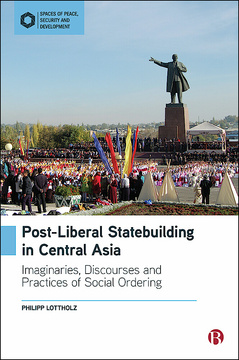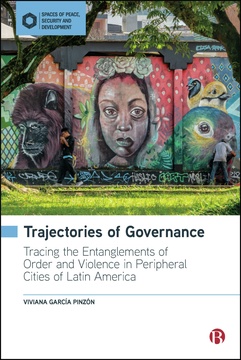Precarious Urbanism
Displacement, Belonging and the Reconstruction of Somali Cities
By Jutta Bakonyi and Peter Chonka
ISBN
978-1529215236Imprint
Bristol University PressISBN
978-1529215229Dimensions
234 x 156 mmImprint
Bristol University PressISBN
978-1529215243Imprint
Bristol University PressISBN
978-1529215243Imprint
Bristol University PressThis book explores relationships between war, displacement and city-making. Focusing on people seeking refuge in Somali cities after being forced to migrate by violence, environmental shocks or economic pressures, it highlights how these populations are actively transforming urban space.
Using first-hand testimonies and participatory photography by urban in-migrants, the book documents and analyses the micropolitics of urban camp management, evictions and gentrification, and the networked labour of displaced populations that underpins growing urban economies. Central throughout is a critical analysis of how the discursive figure of the ‘internally displaced person’ is co-produced by various actors. The book argues that this label exerts significant power in structuring socio-economic inequalities and the politics of group belonging within different Somali cities connected through protracted histories of conflict-related migration.
“This highly original book interweaves photos and gut-wrenching narratives from city newcomers to paint an astonishingly rich picture of the nexus between displacement and urbanization in Somalia.” Jethro Norman, Danish Institute of International Studies
"A major contribution to theoretical debates at the intersection of urbanism, mobility and violence using an incredibly rich and wonderfully historicised analysis of the fast-changing Somali context.” Michael Collyer, University of Sussex
"This book is for everyone working on urban change and urbanization. I have followed the challenging research on which this book is based with great interest from early on and am very happy to see its significant findings published.“ Tabea Scharrer, Leipzig University
"The Horn of Africa region has experienced large population displacement and mobility (forced and voluntary); based on extensive fieldwork, this is a valuable book that contributes to understanding the intersection between displacement, migration, urbanization, politics and development". Ahmed M. Musa, Senior Researcher, PRIO
“There is growing recognition that internally displaced people are among the most misunderstood and under-researched populations globally. This important book plays an essential role in filling this gap, skilfully exposing the ways in which IDPs in urban Somalia are both marginalised and hyper-connected. Drawing across a range of rich qualitative methods in four Somali cities, the authors examine the ways in which (often repeated) displacement is integral to the very process of city-making, with relevance far beyond the Horn of Africa.” Tom Goodfellow, University of Sheffield
Jutta Bakonyi is Professor in Development and Conflict at Durham University.
Peter Chonka is Lecturer in Global Digital Cultures at King’s College London.
1. Introduction: Researching Precarious Urbanism and the Displacement–Urbanization Nexus
2. Histories of Conflict and Mobility: The View From the City
3. Camp Urbanization and Humanitarian Entrepreneurship
4. Improvising Infrastructure: The Micropolitics of Camp Life
5. Techno Relief? Connectivity, Inequality and Mobile Urban Livelihoods
6. Liminal Durability: Belonging in the City and Enduring Solutions
7. Conclusion: Living at the Precarious Edges of Planetary Urbanization







